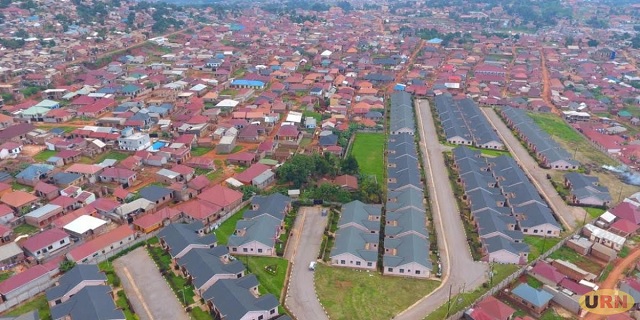
Kampala, Uganda | THE INDEPENDENT | Building experts in Uganda are sounding alarms over the increasing threat posed by construction and demolition waste, highlighting it as a serious environmental hazard with implications for public health and housing. They are urging property developers and government authorities to take immediate action to address these growing risks.
Eng. Kenneth Kaijuka, CEO of the National Housing and Construction Company (NHCC), emphasized the urgency of the situation during his keynote address at the Uganda Society of Architects’ Construction Symposium, held at Imperial Hotel, Kampala, on September 20, 2024.
He explained that construction and demolition waste, generated from the building, renovation, and demolition of structures, can pose significant health risks if not managed properly. He stressed that implementing sustainable waste management practices is essential for protecting human health and the environment.
Architect Catherine Muyinda, Honorary Secretary of the Uganda Society of Architects, echoed these concerns, urging stakeholders to adopt recycling strategies for materials such as wood, steel, concrete, and metal, similar to practices in developed countries.
Kaijuka, representing the Minister of Finance, Matia Kasaija, further called on urban authorities to prioritize land, housing, and population planning to promote organized and sustainable development.
Vincent Byendaimira, from the Directorate of Physical Planning at the Kampala Capital City Authority (KCCA), acknowledged the growing concern about waste management in Kampala’s five divisions. He highlighted KCCA’s collaboration with neighboring districts, such as Kira, Mukono, and Wakiso, to enforce infrastructure policies across administrative boundaries.
The symposium, themed “The Business of Construction in Uganda,” addressed key topics including project financing, compliance, sustainability, and innovative construction technologies. Currently, Uganda faces a severe housing deficit, with only 2 million permanent housing units available against an estimated demand of 9.2 million.
With a growing population of 45.59 million and an annual growth rate of 3.4%, Uganda needs 300,000 new housing units annually; however, developers are producing only 100,000 units. Experts argue that the ideal rate of construction should be 500,000 units per year to meet the demand.
****
URN
 The Independent Uganda: You get the Truth we Pay the Price
The Independent Uganda: You get the Truth we Pay the Price



